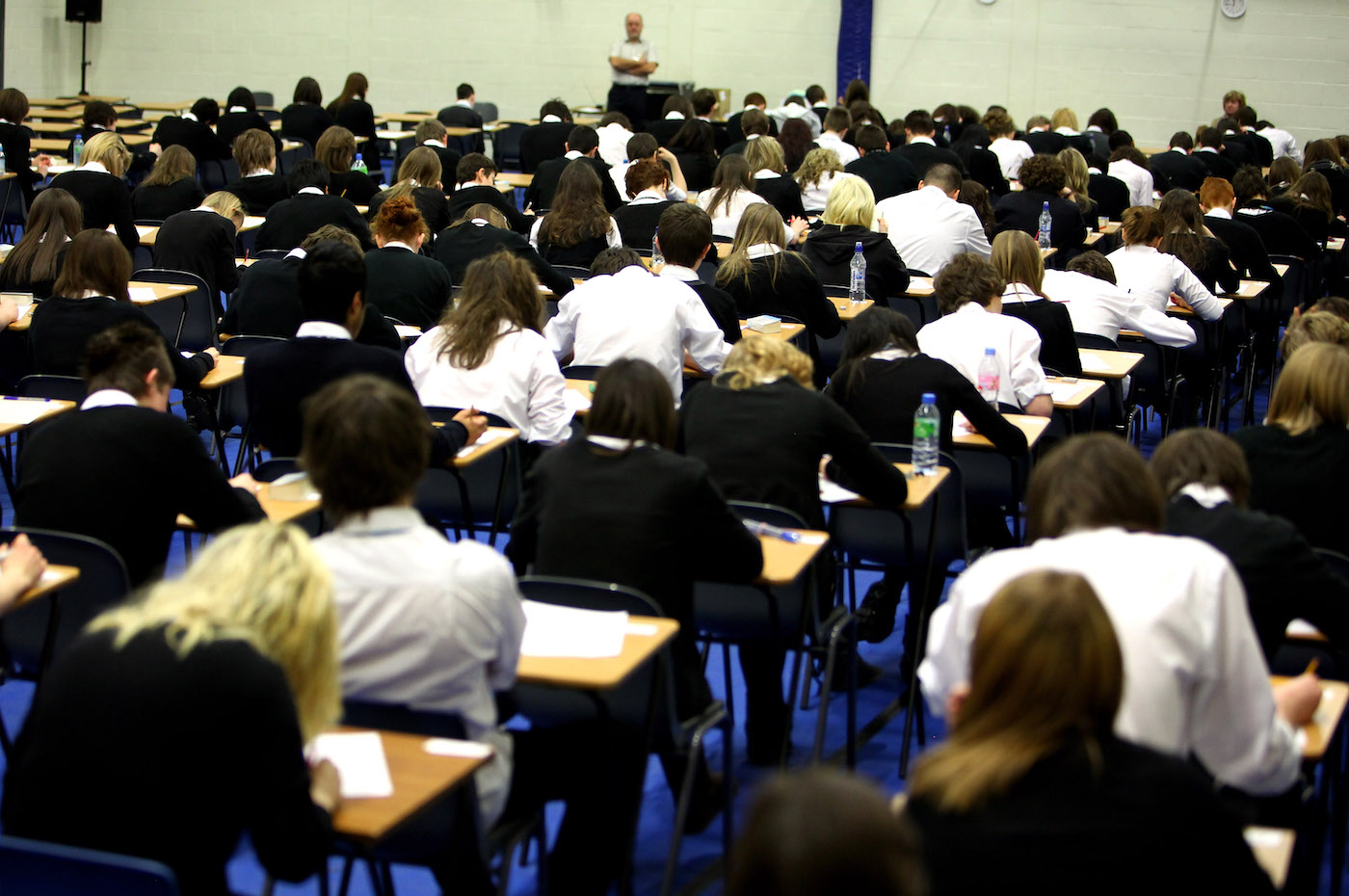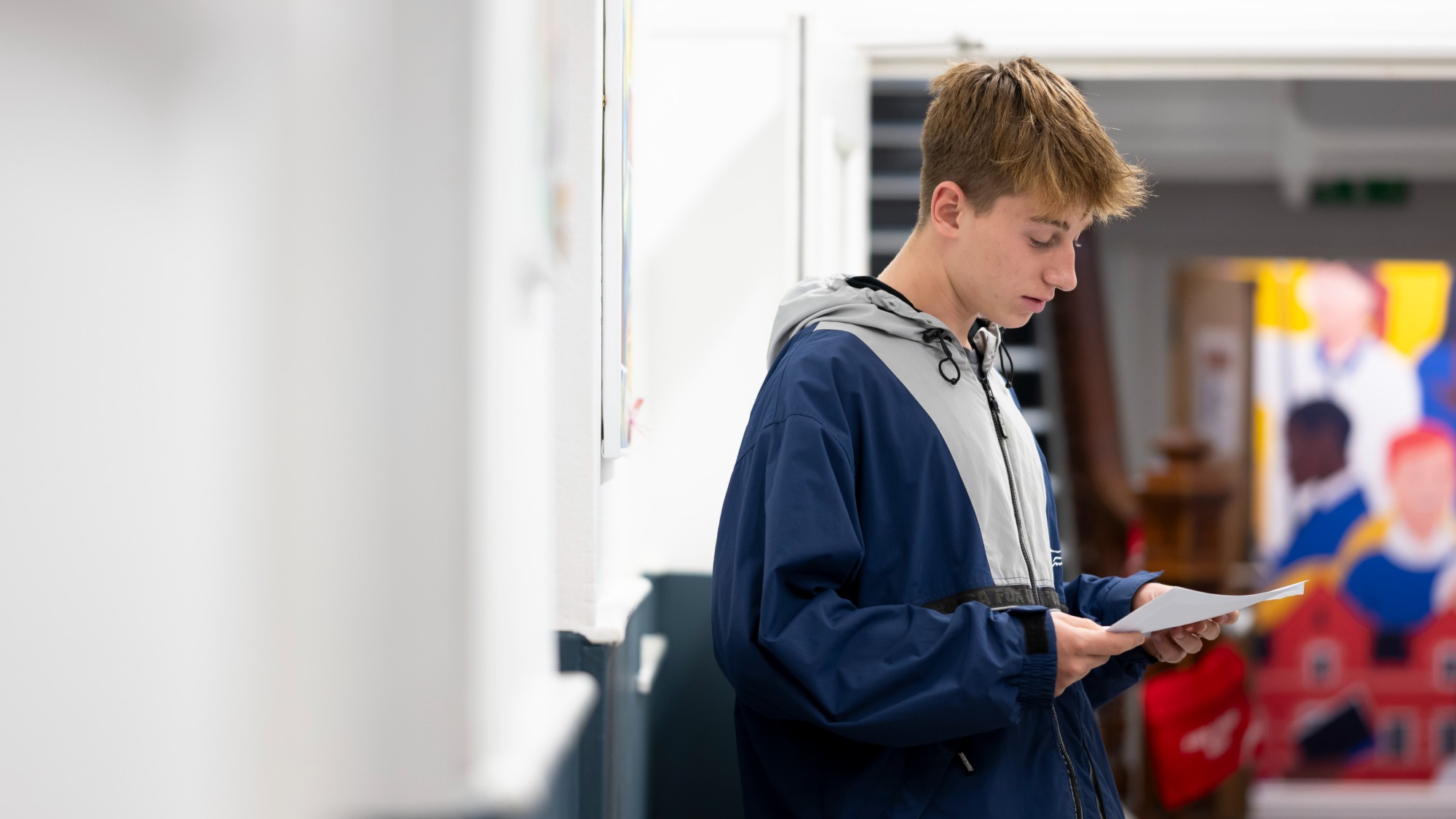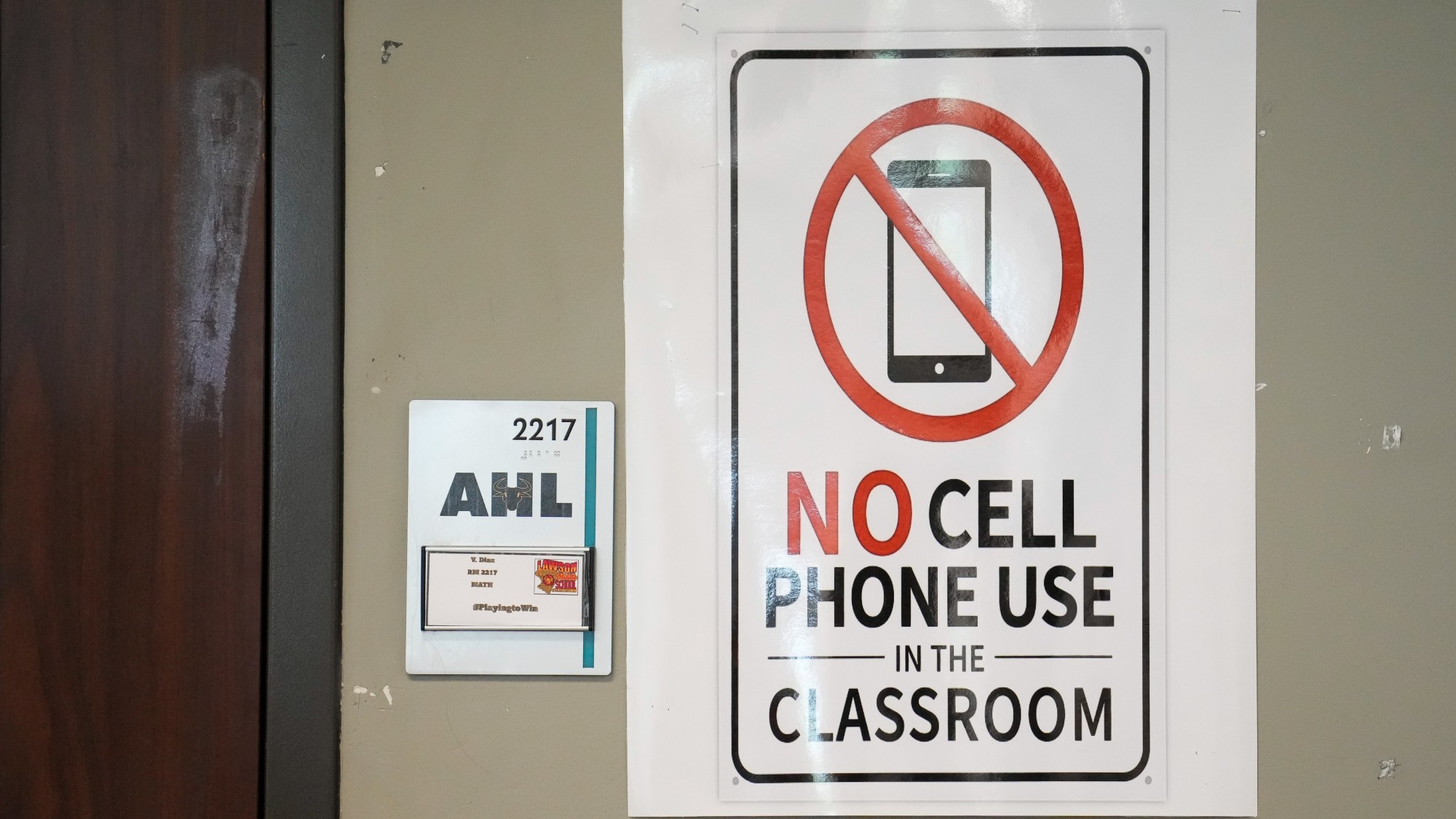Pros and cons of GCSEs: is the exam system fit for purpose?
Tony Blair has called for ‘radical’ education reform but others want a more cautious approach

A free daily email with the biggest news stories of the day – and the best features from TheWeek.com
You are now subscribed
Your newsletter sign-up was successful
GCSEs and A levels should be scrapped in favour of a system that better prepares students for the modern workplace, according to a new report by the Tony Blair Institute for Global Change.
The think tank is calling for “radical reform” to the education system in order to put more emphasis on the so-called four Cs: critical thinking, creativity, communication and collaborative problem-solving. The report – titled “Ending the big squeeze on skills: how to futureproof education in England” – said new qualifications involving “multiple, rigorous forms of continuous assessment” should be introduced, while retaining “a series of low-stakes assessments” at the end of secondary schooling.
In an article in The Telegraph, former prime minister Blair argued that the current system “revolves around snapshot judgements instead of assessing whether schools are preparing young people for the future they face”.
The Week
Escape your echo chamber. Get the facts behind the news, plus analysis from multiple perspectives.

Sign up for The Week's Free Newsletters
From our morning news briefing to a weekly Good News Newsletter, get the best of The Week delivered directly to your inbox.
From our morning news briefing to a weekly Good News Newsletter, get the best of The Week delivered directly to your inbox.
But a report released by the Institute for Government this week warned that while the current system was “certainly imperfect”, proposals for a major overhaul “typically exaggerate the benefits while failing to acknowledge the costs”.
As students nationwide receive their GCSE results today, here are key arguments for and against the secondary education qualification.
1. Pro: widely recognised
Proponents of keeping the current system argue that GCSEs are recognised and viewed favourably by employers in many countries.
Responding to Blair’s calls for reform, a Department for Education spokesperson said that GCSEs and A levels “are highly respected around the world” and provide students with a “rich and fulfilling curriculum which equips them with the skills to succeed”.
A free daily email with the biggest news stories of the day – and the best features from TheWeek.com
2. Con: out of step
While those in favour of GCSEs claim the qualification is internationally respected, critics insist the system is out of step with the rest of the world.
“The UK is in a small minority among developed nations in having public examinations at 16,” wrote The New Statesman’s Philip Collins. “Few nations divide their student populations as we do at that age. It’s time we stopped.”
3. Pro: scrutiny for schools
GSCEs are an effective means to assess and rate secondary schools, according to former schools minister Nick Gibb. In an article for The Telegraph, the Tory MP wrote that while Blair’s “latest foray into education policy is a throwback to the tired old progressive mantras of the 1960s”, GCSEs “define a demanding curriculum for schools, helping to hold those schools to account”.
“Abolish GCSEs and weaker schools will let down generations of students,” Gibb warned.
4. Con: out of date
Critics insist that GCSEs are simply out of date. In his article in The Telegraph this week, Blair wrote that the current system provides “analogue learning for a digital age”. To “thrive in a world increasingly shaped by automation and AI,” he continued, “people will need skills that complement these technologies”.
But GCSEs and A levels “do far too little to meet these needs and employers are increasingly disgruntled by what they are seeing”.
5. Pro: reliable exams
In an article in Tes magazine (formerly the Times Educational Supplement), former Department for Education adviser Sam Freedman argued that the existing exams provide a vital assessment tool for the UK’s “unusually selective” higher education institutions and employers.
“It is this need for reliability that drives much of the English model of assessment,” said Freedman, now a senior fellow at the Institute for Government. By contrast, continuous assessment and coursework are “much harder to make accurate and fair”, he continued, and “tends to benefit those who are wealthy”.
In an article for the i news site, secondary school teacher Nadeine Asbali conceded that “it often seems nonsensical and downright cruel to stick 16-year-olds in a sweltering hall to assess them on things they’ve learned over the last two years, and to use that one hour to judge these young people for the rest of their lives”.
But “the problem is, there is no foolproof, perfect method of assessing pupils”, she added.
6. Con: wrong subjects
Calling for the “wasteful, costly and cruel” GCSEs system to be axed, The Guardian’s Simon Jenkins wrote that “we can only weep to think how much learning relevant to a child’s life in the community is being sacrificed” to outdated views about suitable curriculum content.
“I cringe to look at a GCSE curriculum,” he continued. “Compulsory maths and science, but no compulsory health, economics, law, civics, computing or human relationships. History and geography are mere ‘options’. What cult is in charge of this monastery?”
-
 Political cartoons for February 15
Political cartoons for February 15Cartoons Sunday's political cartoons include political ventriloquism, Europe in the middle, and more
-
 The broken water companies failing England and Wales
The broken water companies failing England and WalesExplainer With rising bills, deteriorating river health and a lack of investment, regulators face an uphill battle to stabilise the industry
-
 A thrilling foodie city in northern Japan
A thrilling foodie city in northern JapanThe Week Recommends The food scene here is ‘unspoilt’ and ‘fun’
-
 How will new V level qualifications work?
How will new V level qualifications work?The Explainer Government proposals aim to ‘streamline’ post-GCSE education options
-
 The pros and cons of banning cellphones in classrooms
The pros and cons of banning cellphones in classroomsPros and cons The devices could be major distractions
-
 School phone bans: Why they're spreading
School phone bans: Why they're spreadingFeature 17 states are imposing all-day phone bans in schools
-
 Schools: The return of a dreaded fitness test
Schools: The return of a dreaded fitness testFeature Donald Trump is bringing the Presidential Fitness Test back to classrooms nationwide
-
 Send reforms: government's battle over special educational needs
Send reforms: government's battle over special educational needsThe Explainer Current system in 'crisis' but parents fear overhaul will leave many young people behind
-
 Education: Can public schools be religious?
Education: Can public schools be religious?Feature A Supreme Court seems ready to rule in favor of religious charter schools in Oklahoma, which could reshape public education
-
 America's academic brain drain has begun
America's academic brain drain has begunIN THE SPOTLIGHT As the Trump administration targets universities and teachers, educators are eying greener academic pastures elsewhere — and other nations are starting to take notice
-
 Schools' Send crisis: how can it be fixed?
Schools' Send crisis: how can it be fixed?Today's Big Question Government urged to reform support for children with special educational needs and disabilities and save councils from bankruptcy